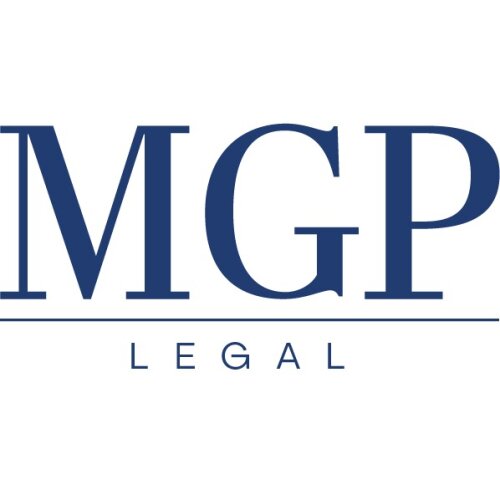Best Landlord & Tenant Lawyers in Florence
Share your needs with us, get contacted by law firms.
Free. Takes 2 min.
Free Guide to Hiring a Real Estate Lawyer
List of the best lawyers in Florence, Italy
About Landlord & Tenant Law in Florence, Italy
Landlord & Tenant law in Florence, Italy governs the rights and responsibilities of both landlords and tenants in rental relationships. These laws aim to protect the interests of both parties and promote fair dealings in the rental market. It is important to understand your rights and obligations as a landlord or tenant to ensure a smooth rental experience.
Why You May Need a Lawyer
While many landlord-tenant issues can be resolved through open communication and negotiation, there are situations where legal assistance may be necessary. Some common scenarios where you may need a lawyer include:
- Eviction proceedings
- Unresolved disputes over rent, repairs, or lease terms
- Illegal practices by a landlord or tenant
- Reviewing and drafting lease agreements
- Understanding your rights and obligations under local laws
Local Laws Overview
In Florence, Italy, several key aspects of local laws are particularly relevant to Landlord & Tenant:
- Lease Agreements: Lease agreements should be in writing and include important details such as the duration of the lease, rent amount, payment terms, and maintenance responsibilities.
- Security Deposits: Landlords can request a security deposit from tenants, generally equal to a maximum of three months' rent. The deposit should be returned at the end of the tenancy, minus any deductions for damages or unpaid rent.
- Rent Increases: Rent increases are regulated by law and cannot exceed certain limits determined by the local government. Any rent increase should be properly notified to the tenant in writing.
- Repairs and Maintenance: Landlords are responsible for maintaining the rented property in a habitable condition and ensuring necessary repairs are carried out. Tenants should promptly report any maintenance issues to the landlord.
- Evictions: Evictions can only be carried out through a legal process, typically requiring a court order. Grounds for eviction may include non-payment of rent, breach of lease terms, or other valid reasons as per local laws.
Frequently Asked Questions
1. Can a landlord increase the rent arbitrarily in Florence, Italy?
No, landlords in Florence cannot increase the rent arbitrarily. Rent increases are subject to specific regulations and cannot exceed the limits set by the local government. The tenant must receive written notification of any proposed rent increase.
2. What can I do if my landlord refuses to make necessary repairs?
If your landlord refuses to make necessary repairs, you should first communicate the issue in writing and keep a record of your requests. If the landlord still does not address the problem, you may need to seek legal advice to explore your options, such as filing a complaint with the relevant authorities or pursuing legal action.
3. Can a landlord evict a tenant without proper legal process?
No, a landlord cannot evict a tenant without following the proper legal process in Florence, Italy. Evictions require a court order obtained through a legal proceeding. It is important to seek legal assistance if you are facing eviction to ensure your rights are protected.
4. What are my rights as a tenant in Florence, Italy?
Tenants in Florence have several rights, including the right to a habitable living space, privacy, protection against unfair rent increases, and security of tenure, among others. Lease agreements and local laws further define the specific rights and obligations of both landlords and tenants.
5. Can a landlord withhold the security deposit at the end of the tenancy?
A landlord can withhold the security deposit at the end of the tenancy only for valid reasons, such as unpaid rent or damages beyond normal wear and tear. The landlord must provide an itemized list of deductions and return the remaining deposit amount within a specified timeframe, typically within 60 days, as per local laws.
Additional Resources
- Agency for the Protection of Tenants' Rights (APTC): www.aptr.it
- Ministry of Justice - Florence: www.giustizia.it
- Florence City Council - Housing Department: www.comune.firenze.it
Next Steps
If you require legal assistance in a landlord-tenant matter in Florence, Italy, consider the following steps:
- Gather all relevant documents, including lease agreements, correspondence, and records of disputes.
- Research and shortlist reputable lawyers or legal firms with experience in landlord-tenant law.
- Schedule consultations with potential lawyers to discuss your specific situation.
- Select a lawyer who appropriately understands your needs and can provide reliable legal advice.
- Work closely with your chosen lawyer to navigate the legal process and protect your rights and interests.
Lawzana helps you find the best lawyers and law firms in Florence through a curated and pre-screened list of qualified legal professionals. Our platform offers rankings and detailed profiles of attorneys and law firms, allowing you to compare based on practice areas, including Landlord & Tenant, experience, and client feedback.
Each profile includes a description of the firm's areas of practice, client reviews, team members and partners, year of establishment, spoken languages, office locations, contact information, social media presence, and any published articles or resources. Most firms on our platform speak English and are experienced in both local and international legal matters.
Get a quote from top-rated law firms in Florence, Italy — quickly, securely, and without unnecessary hassle.
Disclaimer:
The information provided on this page is for general informational purposes only and does not constitute legal advice. While we strive to ensure the accuracy and relevance of the content, legal information may change over time, and interpretations of the law can vary. You should always consult with a qualified legal professional for advice specific to your situation.
We disclaim all liability for actions taken or not taken based on the content of this page. If you believe any information is incorrect or outdated, please contact us, and we will review and update it where appropriate.















